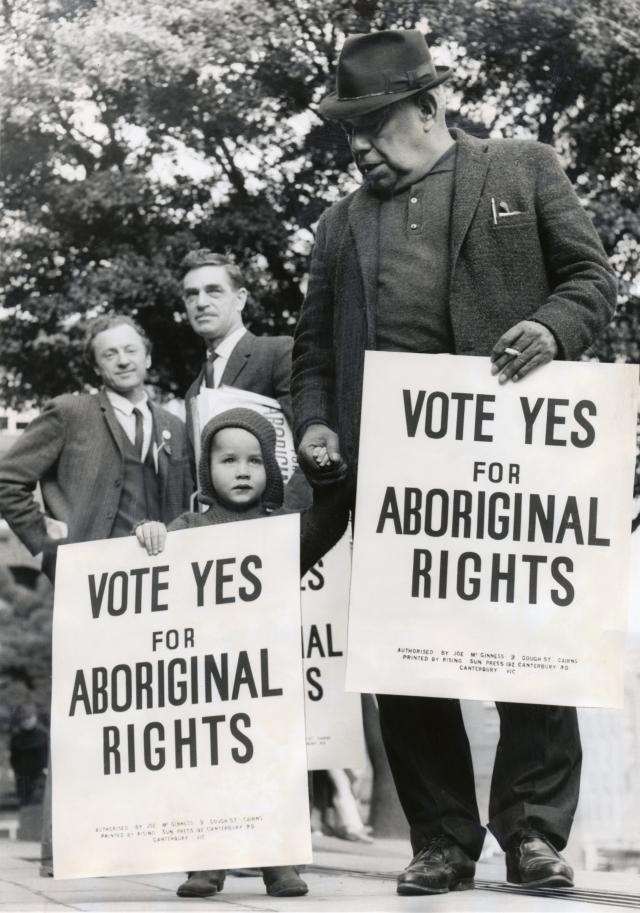
By Tyler Wright
A heroic cultural and political figure who found a base in Belgrave is being remembered in a documentary screening at the Cameo Cinemas.
Bill Onus revived Indigenous Australian culture in the 1940s and ignited a civil rights movement that would change the course of history; and his grandson, Tiriki Onus, has collated documentation of his life to form a detective story and contemporary opera for public viewing.
“It really all just started with a chance discovery in the National Film and Sound archives where a now colleague and friend of mine, Alex Morgan, was presented with film with no label on it, no identifying documentation, just aborigines in the community. The sound was missing. And he had a long career in film, particularly in digital film, and was asked if he could identify and establish the provenance,” Tiriki said.
It was Alex Morgan who alerted Tiriki to the fact his grandfather was the ‘first Aboriginal filmmaker’ and discovered footage the Onus grandson thought was lost decades ago in a caravan fire.
“It was 12 years that separated us, Bill died in 1968 and I wasn’t born until 1980; but stories of Bill had always been told again and again. And whenever I went out to events and things it’d be old Aunties that would want to pull me inside and tell me how much I look like him,” the director said.
“We have these mythologies in our families that we tell usually just for us and our families, and it’s about those family members that are no longer here and the extraordinary things that your great aunt did or your grandfather did… I always felt very close to Bill but always had this yearning, this desire to know more.”
On the film sourced from the film and sound archives, Tiriki saw his great uncle Jimmy Onus and grandfather Bill joined by other black activists from mid 20th century Australia.
“People like Marge Tucker and Joyce Johnson, pastor Dough Nicholls… I saw a very different narrative than anything else I’d ever been presented with from the 40s,” Tiriki said.
“Here you had people [living] in open defiance… and were using their cunning to hide all of that work in plain sight by putting it on stages, and performing in front of thousands.”
Upon being in awe of this footage, Tiriki and Alex sought to tell the history of Bill Onus and his contemporaries, not limited to the push for the vote yes campaign and subsequent referendum in 1967.
The story also captures Kulin country in the Dandenong Ranges, where Bill employed both Indigenous and non-Indigenous people in his shop.
“We talk to people who had those intimate memories of Bill themselves – people like Aunty Fay Carter tattoo, or national treasures like Uncle Jack Charles as he recounts being taken from the boy’s home on a bus out to Belgrave to watch Bill throw boomerangs out on Monbulk Road,” Tiriki said.
To learn more about ‘Ablaze,’ visit https://www.cameocinemas.com.au/movies/ablaze






